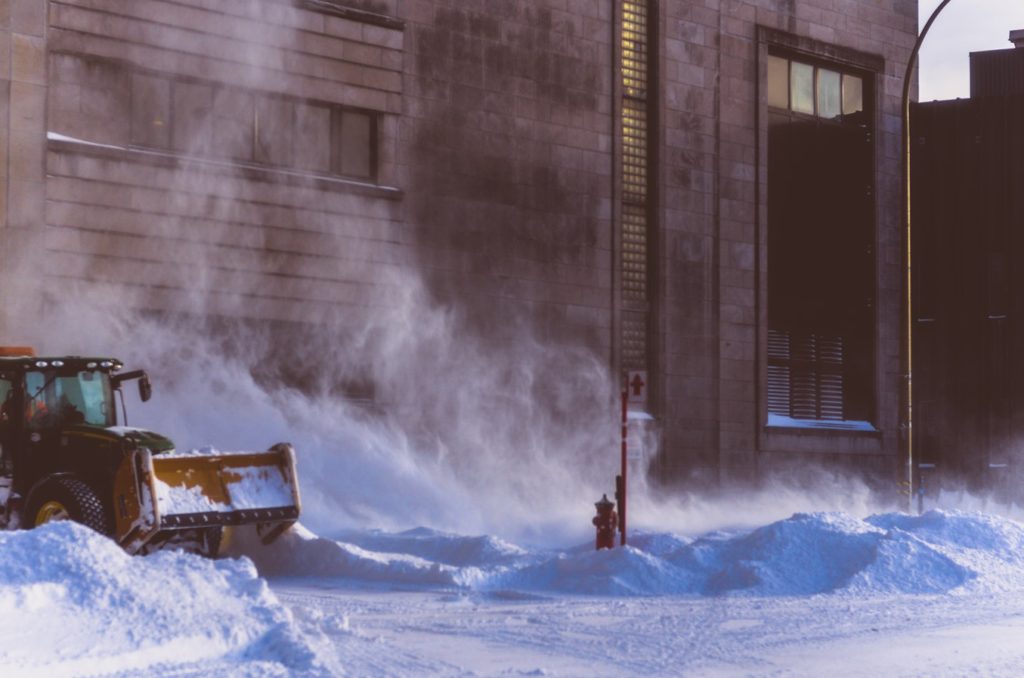
On January 8th, 2018, a snowplow driver in New Jersey struck two vehicles while operating a Department of Transportation vehicle. This would have been bad enough, but when finally stopped by police and tested, he had a blood alcohol content level nine times higher than the legal limit! The driver had multiple DUI arrests on his record, yet was still allowed to get behind the wheel of a massive truck and drive on public streets.
While collisions with snowplows are thankfully rare in New York, when they do happen, the destruction they can cause is immense.
In New York, snowplow drivers have immunity against negligence-based lawsuits, though they may still be held accountable for reckless actions. The state can be held liable for snowplow drivers in certain situations, though it’s important for anyone injured in such a case to take immediate action.
Negligence and Snowplow Drivers
Looking for an interesting fact to share with guests at dinner parties this winter? Try this out: in New York, snowplow drivers are immune from the rules of the road that every other driver must follow. Divers of snowplows can legally run red lights, go through stop signs, make illegal turns, and do just about anything they need to do in order to keep New York streets clear. But does that give them absolute freedom on the road?
No, not completely. It gives them immunity from the standard of care most drivers have to follow in order to avoid liability for an accident. For example, if you run a red light and crash, the act of going through a red light violates the law and can make you liable for damages caused by the crash. If a snowplow driver goes through a red light, however, he has not been negligent and is therefore not liable.
But snowplows don’t have free reign on city streets. They can still be held liable for collisions if they acted in a “reckless” way. This may seem like a minor difference from negligence, but in legal terms it is distinct. Negligence is an action that goes against what a reasonable person would do; recklessness is an action that deliberately ignores a likelihood of harm or damage to someone else.
Oh, and remember that drunk snowplow driver in New Jersey? Intoxicated driving is specifically not included in the immunity snowplow drivers have in New York. So a drunken snowplow driver here would be just as liable as any other intoxicated person behind the wheel.
New York State’s Immunity
You may have heard that states have “sovereign immunity” against lawsuits in the U.S. While that’s true, New York has waived its immunity against lawsuits for certain situations. Specifically, New York can be sued if damage occurs while the state is performing proprietary actions like clearing streets with snowplows.
To file a lawsuit against the State of New York, such as against the Department of Transportation, you need to file a Notice of Claim with the Attorney General within a short time after the accident that caused injury. Failure to do this within the time limit can cost you the opportunity to seek compensation from the state.
Private Companies and Liability
Sometimes private companies operate snowplows, rather than the state; these are often found clearing out snow for business parking lots and other private property. Drivers for private companies don’t have the same immunity as state snowplow drivers, so they are expected to operate in a safe manner. These companies have to have commercial insurance to cover accidents and injuries due to the snowplow service.
A case came to trial in Brooklyn in 2010 in which someone slipped and fell due to ice formed from the runoff of plowed snow on a neighboring business’s parking lot. The plaintiff was not the person or business that had hired the private snowplow company to clear snow from the parking lot. The company tried to say the business was liable since it was their property. The court rejected this argument, and said a snowplow company can still be liable in some cases.
In general, a snow removal company’s contract does not make them liable for damages unless their performance creates a situation that causes harm, they are detrimentally relied upon to perform their duties, or the contract completely displaces the property owner’s duty to maintain safe premises. In other words, sometimes the property owner can be held liable, and sometimes a snow removal company can be held liable—it depends on the specifics of a situation, which is why having a top NY personal injury attorney is so important in any lawsuit.
Wingate, Russotti, Shapiro, Moses & Halperin, LLP, has handled many successful claims against the State of New York and government vehicles. For a free consultation about your situation, please call us at (212) 986-7353 today.